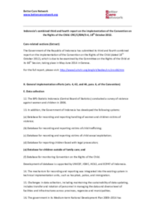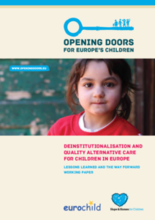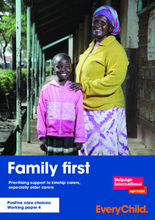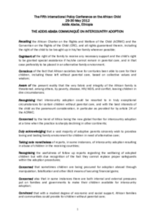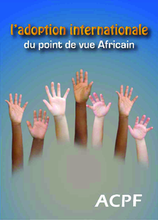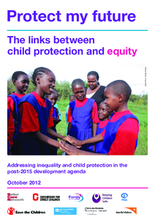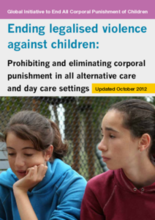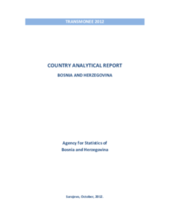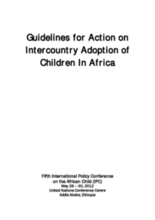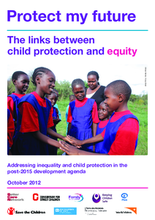Displaying 1321 - 1330 of 1798
Care related section of the Government of the Republic of Indonesia's third and fourth combined report on the implementation of the Convention on the Rights of the Child (dated 18th October 2012).
This paper aims to raise awareness on the perverse effects of institutionalisation on children and it calls for comprehensive system reforms, starting with a transition towards family and community-based care. It highlights country level lessons learnt in the European context that demonstrate how deinstitutionalisation can be achieved in practice.
The paper calls for greater prioritisation to be given to supporting kinship carers and the children in their care, including ensuring such households are able to access social protection, and receive psycho-social and health care support and assistance with education where needed.
In the recently released outcome document of the Fifth International Policy Conference on the African Child, conference delegates call for a reversal of the current trend of resorting to intercountry adoption as a primary solution for African children in need of alternative care, and for giving prime priority to enabling all children in Africa to remain with their families and communities.
This publication, published in French, was prepared as a background document to inform the discussions and debates during the Fifth International Policy Conference on the African Child held on 29-30 May 2012 in Addis Ababa, Ethiopia. This report examines the rationale behind increasing intercountry adoption in Africa, the main thrust of international standards, the extent and magnitude of African intercountry adoption and its problems and challenges. The paper provides recommendations to this increasing trend and aims to establish a more Pan-African position on the topic of intercountry adoption.
The lack of care and protection facing children is a global crisis. This paper is part of an inter-agency series originally developed to feed into the global thematic consultation for the post MDG framework: ‘Addressing Inequalities. The Heart of the Post-2015 Development Agenda and the Future We Want for All.’ It looks at the relationship between this lack of care and protection and inequality. It explores how inadequate care and protection produces and contributes to inequalities and how inequality is itself a cause of inadequate care and protection. The paper also examines the long-lasting impact of inadequate care and protection which greatly affects children’s life chances into adulthood, suggesting that inadequate care and protection is in itself a form of inequity.
The report provides guidance on achieving law reform which gives children in alternative care and day care the protection from all forms of corporal and other cruel and degrading punishment that is their absolute right.
The Guidelines for Action on Intercountry Adoption of Children in Africa was adopted at the Fifth International Policy Conference on the African Child held on 29-30 May 2012 in Addis Ababa, Ethiopia. The objectives of the Guidelines are to facilitate and support the efforts of States to take all appropriate legal, administrative, and other measures to ensure that all persons and organizations involved in the adoption of a child act in conformity with applicable international legal instruments. Recommendations are set forth for central authorities and accredited bodies.
The lack of care and protection facing children is a global crisis with billions of children experiencing abuse, neglect or exploitation, and many millions growing up outside of families, on the streets or in harmful institutional care. This lack of adequate care and protection is commonly the result of inequalities. Children without adequate care and protection are stigmatized and have inequitable access to basic services which, severely diminishes life chances and creates a spiral of disadvantage. In order to break this spiral, the authors of this report recommend a three-pronged strategy.

